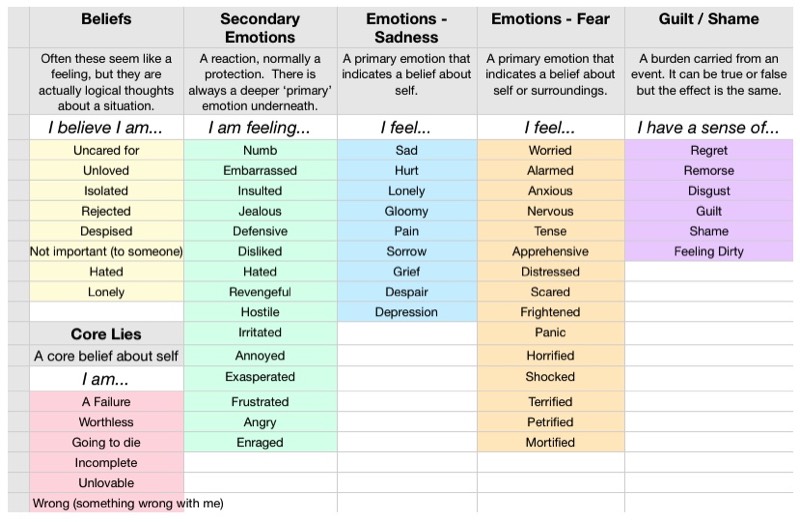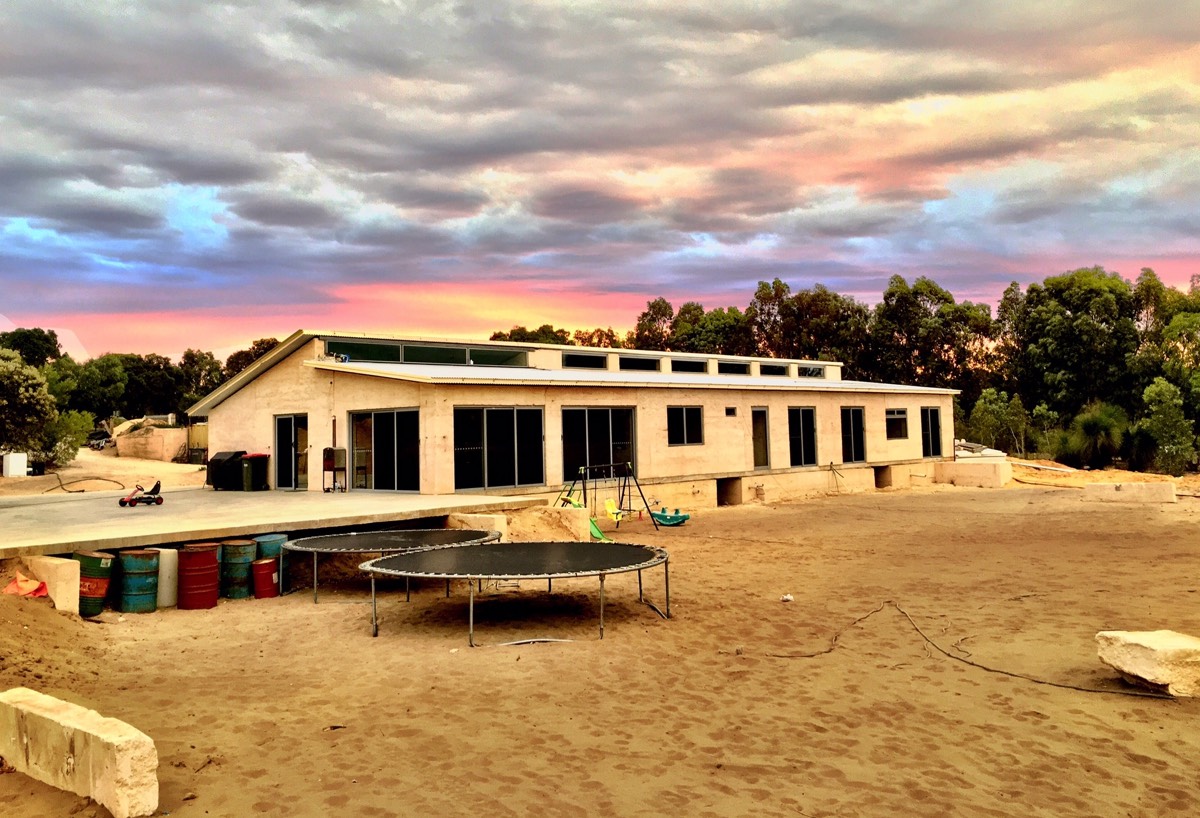The difference between thoughts, emotions and beliefs
The Difference
Beliefs and feelings are very different and have different purposes and results.
A feeling or emotion is something we feel, based on what we believe.
For instance: If I believe that a snake will kill me and I nearly step on one, I will feel fear. The feeling is fear, which is based on the fact that I have a belief - ‘it will kill me’. .
A common statement can be “I feel like you are attacking me”. The feeling has not been expressed. The belief is that 'I am being attacked' the emotion has not been stated.
As you go through the process of TPM, the difference between these two will become more and more obvious.
Secondary Emotions
These are things we feel (and often the only things we are aware of) but they are not true emotions. We often believe inwardly that they protect us from the true, deeper, more vulnerable emotions.
For example, when your partner does something to you, you may feel anger. But the anger is just a protecting layer, to try to stop you from feeling a bad, vulnerable feeling e.g. sad because you feel belittled etc. In a TPM session we may have to deal with the reasons behind why the secondary emotions are suppressing the real emotions.
Numbness or ‘no feeling’ is a common secondary emotion, as is anger, depression, defensiveness or even laughter. Again, these feelings are in place due to beliefs which will be addressed in the session if they come up.
No matter what God will help you through the session to receive truth if that is your will.
Emotions
We are designed to feel emotions every day - both good and bad. These emotions indicate what we believe in any moment. Without sin, as God intended them, they are very beneficial, enjoyable and make life colourful.
Unfortunately however, due to sin, most of us didn’t grow up in a perfect world or environment. These emotions can now cause us a lot of grief and hardship - especially if they are based on lies instead of truth as intended.
]For instance, we were created to be loved, accepted and cherished. We are designed to believe that we are loved and loveable. But what if you have believed from an early age that you are unlovable or there is something wrong with you? Your emotions will indicate this belief throughout life in many situations and will ultimately affect most of the choices you make for your life.
While we are all different and feel according to how God designed us, many of us have stopped feeling - or are only aware of ‘secondary’ emotions or reactions. We may rarely feel any true (vulnerable) emotions or may be numb. This is not what God wants for us or from us.
Beliefs (General)
We can believe something to be true in our minds, but not really believe. We call this a thought and it can be changed by information. .
An example of this is well illustrated in the story of the famous tight-rope walker who walked over the Niagara Falls with a wheelbarrow. Someone in the crowd shouted something like “you're the best, you can do anything!”. To which he replied “if you believe that, come and get in the wheelbarrow!” Getting in the wheelbarrow would be true belief!
You may believe what you want to mentally, but what you believe internally through experience is much stronger and will affect you in key moments. For instance - you may convince yourself that God protects you, that only certain snakes are dangerous, that people rarely get bitten etc - but then when a snake is present you are petrified. The logical beliefs make very little difference. Although it is easier to be seen in phobias, this mechanism is at work in all of us.
An amazing fact about beliefs is that they don’t have to be true to affect us. For example, If you believe a grasshopper can kill you - and one jumps on you, it will cause fear! It doesn't matter that the belief is false!
We learn many of our very important self beliefs during childhood. These, you will find (if you have tried), are nearly impossible to change. We learned them experientially and only God can travel through time to bring truth to them. This is what happens in a TPM session!
Beliefs (Conclusions)
Beliefs help us live life safely. But they can also be the basis for pain. Most of our beliefs are based on interpretation and assumption when they are about us. We call these beliefs Conclusions.
In childhood, most of us view the world with us at the centre - everything that happens is interpreted through this lens. Seemingly simple and small events can seem huge and affect us deeply.
The beliefs we have about events and the actions of others are often all we recall and are aware of, but are not the cause of the negative emotions we feel. Here is where our mind generally stops and avoids anything deeper.
An example of a conclusion in TPM might be 'my parents did not care for me'. Now this statement might or might not be true. In a TPM session, we don't try to investigate whether it is true as it really doesn't matter. We don't assume it is true or false - we know this is simply your conclusion. We also know this conclusion does not cause the issues or pain you face.
Core Beliefs
A core belief is a belief about self. It is much more vulnerable and painful than a conclusion and is the very thing that TPM centres in on.
In the previous example, someone who reported 'my parents didn't care for me' would be asked something like 'what did you come to believe about yourself when your parents didn't care for you?'
The person getting ministry would eventually come to a self belief like 'I am a piece of junk'. This is a core (personal) belief and is what causes the pain throughout life.
Imagine that anytime a person got no attention or encouragement they believed that they were a piece of junk! They would feel terrible, and might go out looking for attention and encouragement (by performance) and would probably continually think that others didn't care about them.
When a core belief is uncovered in a TPM session, this is where you would be asked if you would be willing for Jesus to speak to you about it.
Examples
The chart below gives examples of some of these different elements. It is not a definitive chart that needs to be remembered, but is given for illustration and example only.
I feel like I am stupid and that you are accusing me (click here)
Jo Blo
I feel like I am stupid and that you are accusing me
Jo Blo

Notes:
w
w
We run a small business to sell the products that we find helpful, please consider having a look!
Solar Cooking - the Sun Oven
Stainless Water Bottles - EcoTankas
Health and Various - BonzaBuy!
© 2018 Adam & Sharmini

